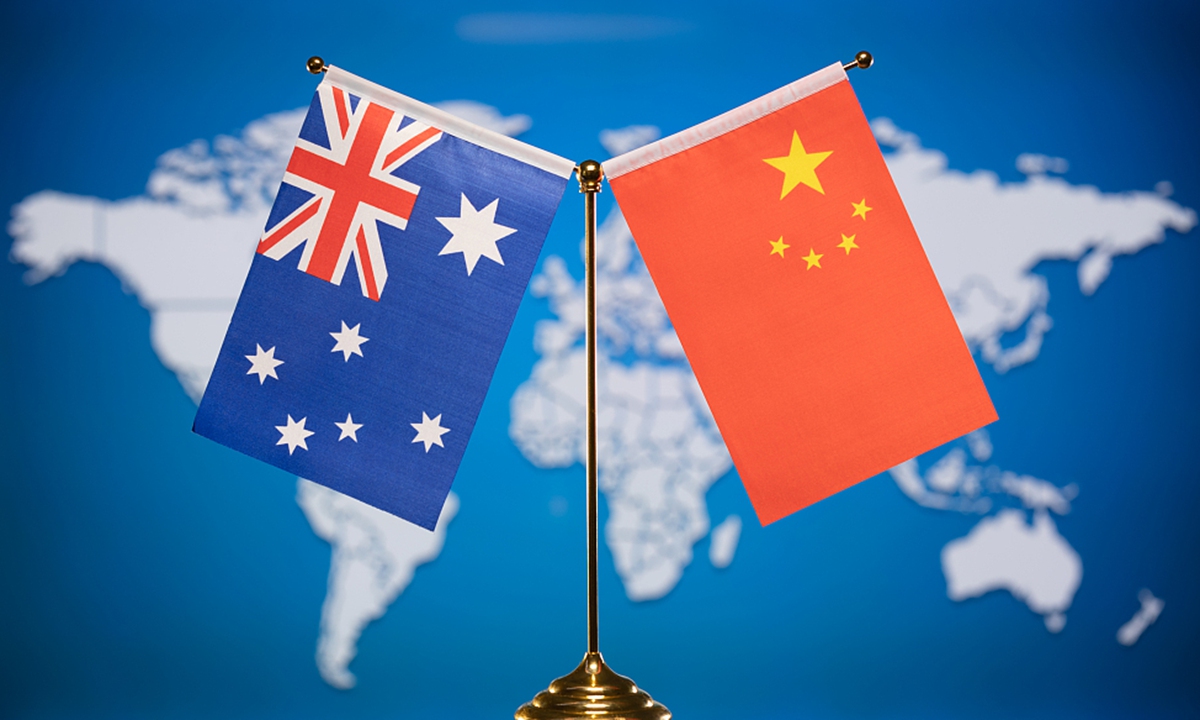Expat living in China says he feels ashamed as an Australian
By Li Sikun Source: Global Times Published: 2020/12/3 2:36:18

Photo: VCG
Amidst an escalating war of words centered on a cartoon showing the atrocities committed by Australian soldiers against Afghan children, an Australian who has lived in China for 10 years has something to say: "Today, as an Australian, I feel ashamed. The Australia I left 10 years ago compared to the Australia of today is entirely different."
Hazza, a Queenslander whose real name is Harry Harding, got involved in the spat between China and Australia after Australian Prime Minister Scott Morrison demanded China to apologize for a fact-based photo showing an Australian solider killing an Afghan child. The image was posted by China's Foreign Ministry spokesman Zhao Lijian.
In a comment under Zhao's tweet Hazza said, "Today was the first time I ever even contemplated relinquishing my Australian citizenship. I pay tribute to you and all of the efforts you have made. I hope that leaders in our country can learn from you; only then can the world be peaceful and prosperous. Sorry."
The comment was initially published in Chinese and Hazza translated it into English and posted it on his own twitter account.
In an exclusive interview with the Global Times on Wednesday, the Australian expat said he had replied to Mr Zhao's tweet "to apologize, as an Australian, not on behalf of all of the Australians, nor the Australian government, for all of the anti-China rhetoric that has come from Australia over the last 24 months."
He said that, as an Australian living in China, he has observed this attitude grow and felt sorry to see that Australia has felt fearful or resentful of China instead of enjoying a stable and mutually beneficial relationship.
Hazza grew famous in the Chinese media in 2011 for recording Chinese songs. He went on to become a TV and radio host in South China's Guangdong Province.
When asked why he said he "contemplated relinquishing" his Australian citizenship, Hazza said that for one moment, he has lost faith in his own country.
"At that moment, I did not want to be associated with Australia because what I was seeing and hearing from Australia did not align with my own values as a human being, and values that I thought were Australian values," said Hazza.
After Zhao's post, Morrison demanded the Chinese government to delete the tweet. Australia is seeking an apology from the Chinese government, Morrison said, claiming that the cartoon is fake and that China should "feel ashamed" of it.
China's Ministry of Foreign Affairs has repeatedly rebuked Morrison's exigence. Hua Chunying, spokesperson of the ministry, reiterated on Monday that the Australian government should feel "ashamed" for murdering Afghan civilians.
On Tuesday, Hua said that Morrison's real purpose is clear, and that is to divert attention and shift pressure from Australian war crimes to criticism of China.
"I was shocked to hear the findings of the report [an investigation report by the Australian Department of Defense, which the cartoon was based on]. There are no words to describe how distressing it was to hear that," said Hazza, noting that there's much to be done to make sure that this never happens again.
Commenting on the spiraling degradation of bilateral ties between Beijing and Canberra, Hazza said that the major reason is "lack of understanding," and that the Australians are not prepared for China's rise.
"We need more Australians to learn Chinese, understand how the country works, and engage meaningfully with China. Unfortunately, most predictions on China's future are based on the past."
The Australian, who has deep ties with China, also had a message for Morrison. "I would tell him that decisions made today that impact our relationship with China will have repercussions for decades to come," he said.
As an Australian, who cares about the future of both countries, he would like to encourage the Australian government to actively try to restore relations, reduce frictions, and find common ground.
"If we had a stronger relationship, we could have established a 'travel bubble' by now, with strict anti-virus measures of course, but that would have been of great assistance to our economic recovery, and would have brought our two countries closer together. I see this as a missed opportunity," said Hazza.